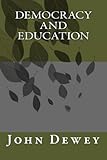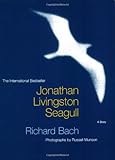This week, we are continuing our discussion of Dewey’s Democracy and Education.
One of his themes that has been on my mind is that passing on communities through education is important, but the size of that community affects what gets passed on. I believe that this reflection is extremely important when considering the current educational system in the U.S. We are trying to set national standards for a huge geographical area with a wide, wide variation in beliefs. When considered from that perspective, it seems obvious how much trouble it might be trying to set one national curriculum.
If this identification of knowledge with propositions stating information has fastened itself upon logicians and philosophers, it is not surprising that the same ideal has almost dominated instruction.
Here, Dewey is following up some with the point that I ended on last week. In our school system there’s a huge focus on knowing things and learning them my memorization. Dewey is here suggesting that this is simply an outgrowth of the way our philosophers and logicians understand what knowledge is. I concur with him 100% here. I’ve spent a great deal of time trying to show that knowledge is something more than simply knowing facts. However, the most widely accepted definition of knowledge in the philosophical realm is a “justified, true, belief.”
It is now so bulky that the impossibility of any one man’s coming into possession of it all is obvious. But the educational ideal has not been much affected. Acquisition of a modicum of information in each branch of learning, or at least in a selected group, remains the principle by which the curriculum, from elementary school through college, is formed;
Dewey is here explaining that the amount of knowledge we as a world have available to us has grown at an incredible pace since we first set up our educational institutions, and yet, the education system remains the same. “Information used to be as rare and precious as gold. (It is estimated that one weekday edition of today’s New York Times contains more information than the average person in seventeenth-century England was likely to come across in an entire lifetime.)” There’s no way that we can memorize all of this information, and there’s no longer a reason to, either. Access to books and the internet put much of this information at our fingertips. The much more important and urgent mandate is to know how to interpret and use all of this information. Critical thinking skills are more important than ever!
Recreation, as the word indicates, is recuperation of energy. No demand of human nature is more urgent or less to be escaped. The idea that the need can be suppressed is absolutely fallacious, and the Puritanic tradition which disallows the need has entailed an enormous crop of evils. If education does not afford opportunity for wholesome recreation and train capacity for seeking and finding it, the suppressed instincts find all sorts of illicit outlets, sometimes overt, sometimes confined to indulgence of the imagination.
At a one of the state AmeriCorps nonprofit meetings I recently got to attend, I found out a little more about an organization called Playworks. They send coaches, many of whom are AmeriCorps members, into schools to help with organized play, and they’ve seen some of the following benefits:
- 98% reported an increase in the number of students that are physically active during recess
- 86% reported a decrease in incidents of bullying
- 87% reported a decrease in disciplinary referrals
- 88% reported a decrease in the number of conflicts originating on the playground and spilling over to class
- 85% reported a reduction in the amount of time transitioning from recess to classroom instruction.
- 89% reported an increase in students’ abilities to focus on class activities
The way to enable a student to apprehend the instrumental value of arithmetic is not to lecture him upon the benefit it will be to him in some remote and uncertain future, but to let him discover that success in something he is interested in doing depends upon ability to use number.
Application to the real world. This has been said over and over again. What I want to make sure is obvious though is that for Dewey this does not necessarily mean application to a career. I think a lot of people who write about Dewey make the assumption that all he supports is vocational training, and that’s not true. When I saw application to the real world, I mean the things people are interested in outside of school. Some of that might ultimately tie into a career, but it might also be hobbies or things about which we are simply curious.
The undisciplined mind is averse to suspense and intellectual hesitation; it is prone to assertion. It likes things undisturbed, settled, and treats them as such without due warrant. Familiarity, common repute, and congeniality to desire are readily made measuring rods of truth. Ignorance gives way to opinionated and current error,—a greater foe to learning than ignorance itself… A Socrates is thus led to declare that consciousness of ignorance is the beginning of effective love of wisdom, and a Descartes to say that science is born of doubting.
For me, this is an extremely significant passage, as I believe it gets to the root of a lot of the issues we face as a country, especially in the realm of religion and politics. Rather than admitting ignorance, many people prefer strong opinions that have nothing to back them up. There is a fear of being uncertain about things. I have told people that my views and beliefs are always open to revision, and that’s why I still enjoy having conversations about these topics again and again – especially with people I tend to disagree with. This was shocking to them.
It’s only becoming more and more apparent to me as I get older that being able to declare one’s own ignorance, and limited understanding, truly is one of the most important aspects of becoming wise. It’s ok not to know everything. It’s okay to always be open to revising what we believe. This is an important message that needs to be understood.
Next week we will be finishing up Democracy and Education:

The following week, we are going to have a fun, short reading titled Jonathan Livingston Seagull by Richard Bach. Go ahead and secure your copy if you’d like to participate in the discussion with us!


